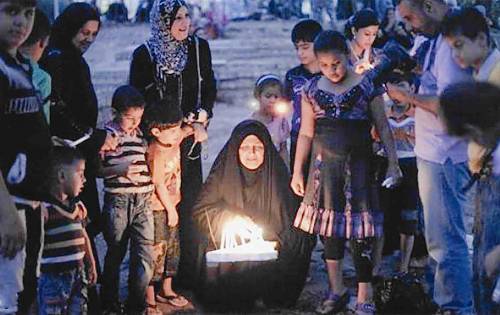Khidr Elias feast and its vows
Inscribed in 2016 (11.COM) on the Representative List of the Intangible Cultural Heritage of Humanity
Every year in February communities in Iraq honour Alkhidr, a holy figure who, according to ancient beliefs, grants worshippers their wishes particularly those in need. In northern Iraq, during the last three days of the month, families gather on a hill where the sanctuary of Alkhidr is thought to be. Dressed in traditional clothes they enjoy specially prepared dishes and perform a popular dance called the dabkka. In the centre of Iraq, community members join on the bank of Tigris, which they believe is the sanctuary of Alkhidr. They deliver sugar, salt, henna, sweets and myrtle leaves and at night send lit candles on wood along the river, making vows for their wishes to be granted. If the candles go out before reaching the other side, the wishes are said to come true. In the south of Iraq, myrtle leaves are also brought but only one candle lit. If the candle goes out before reaching the other side, believers are encouraged to give to the poor on a Friday so their wishes are met. Younger generations learn about the practice from older family members and at school. Shared identification with the tradition has helped to build social cohesion within communities.










